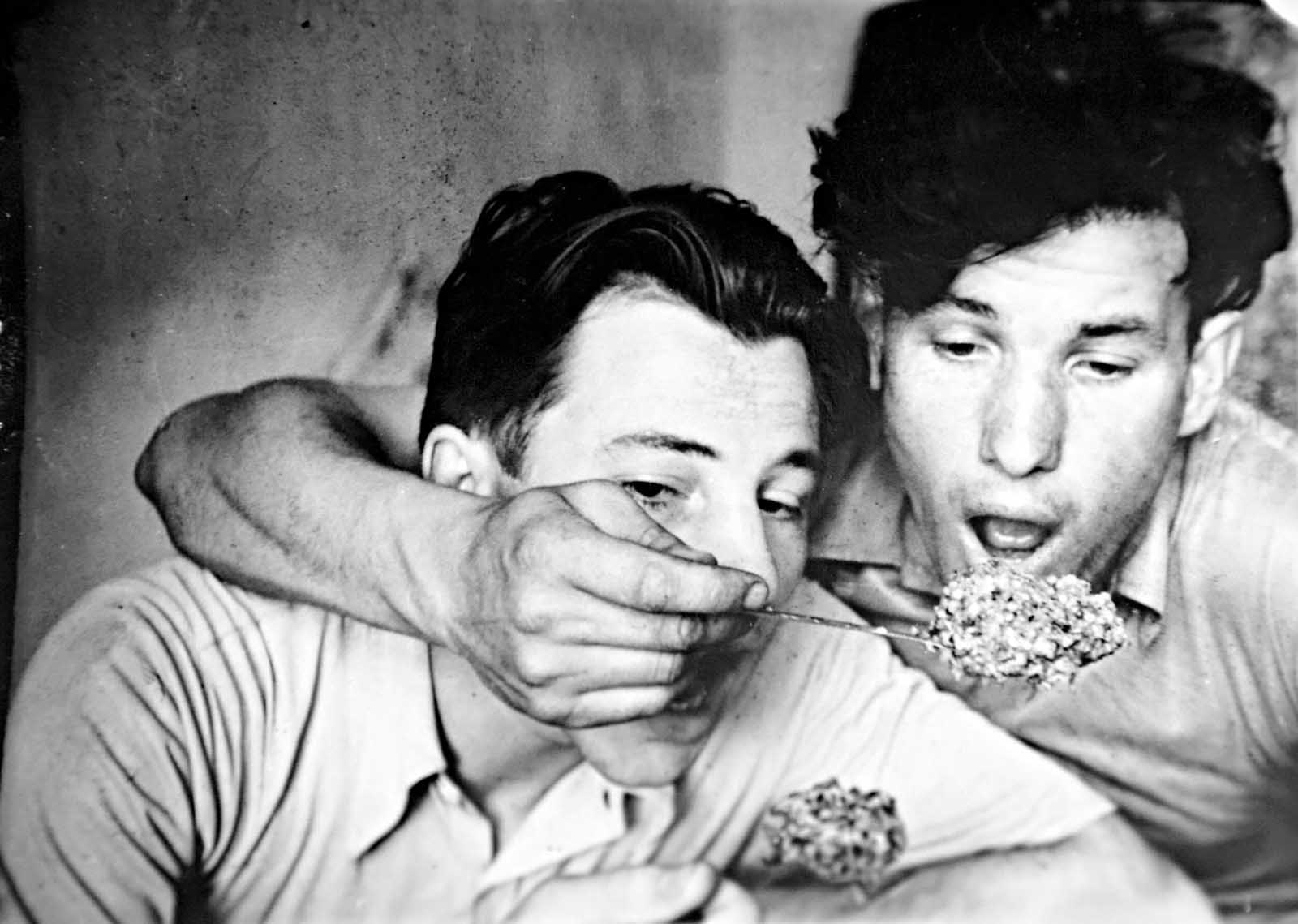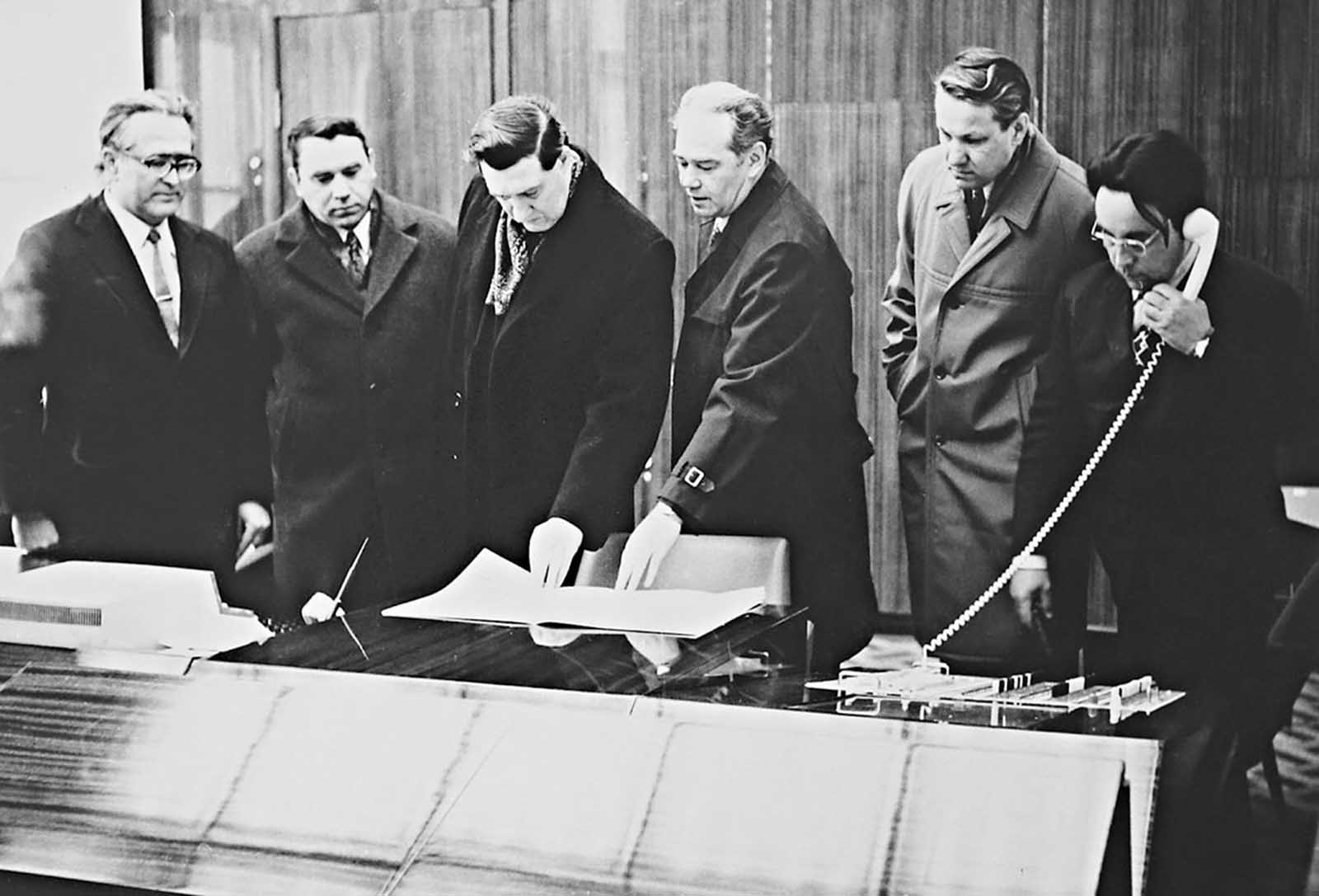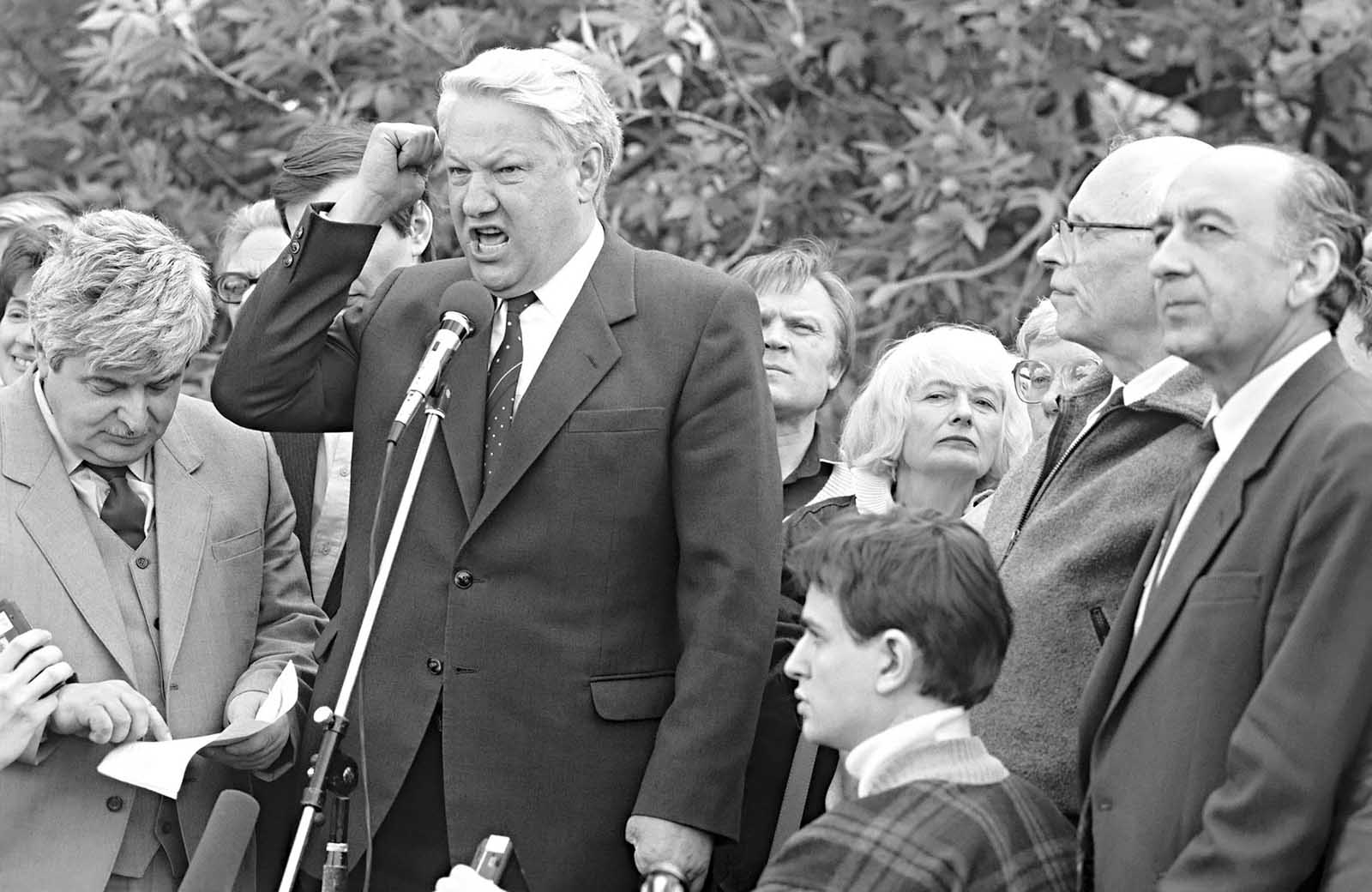Yeltsin was perceived at varying times as a folk hero, as a symbol of Russia’s struggle to establish a democracy, and as a dictatorial figure. Boris Nikolaevich Yeltsin was born into a Russian working-class family on February 1, 1931, in the small Siberian village of Butko. His parents were Nikolai and Klavdia Yeltsin. He grew up with a younger brother, Mikhail, and a younger sister, Valya. The Yeltsin family lived in communal, or group, situations, first on a farm and later at a construction site where his father worked. His family was in close contact with many other families and their privacy was extremely limited. Yeltsin lived and worked in Siberia for most of his life. His early life, like most of his countrymen in the 1930s and 1940s, was marked by hardship, and as the oldest child Boris had numerous responsibilities at home. A strong-willed child, Boris twice stood up to the educational system. At his elementary school graduation, he criticized his homeroom teacher’s abusive behavior, which resulted in him being kicked out of school. He appealed the decision and, after an investigation, the teacher was dismissed. During his last year in high school, Yeltsin was stricken with typhoid fever, a terrible disease that causes fever and other symptoms and is easily spread, and forced to study at home. Denied the right to take final examinations because he had not attended school, he appealed and won. His actions were extraordinary considering this happened during the rule of Joseph Stalin (1879–1953), a period when the government had an intense stronghold on its citizens. Trained as an engineer, Yeltsin graduated from the Ural Polytechnic Institute. He married his wife Naina at a young age and they had two daughters. Yeltsin initially worked as an engineer in the construction industry in Sverdlovsk, moved into management of the industry, and later began a career in the Communist Party, eventually becoming the first secretary of the party in Sverdlovsk. Yeltsin joined the Communist Party at age thirty, relatively late for a man with political dreams. In 1985 Mikhail S. Gorbachev, the new general secretary of the Communist Party of the Soviet Union (CPSU), brought Yeltsin to Moscow to serve as secretary for the construction industry. Within a year he was appointed head of the Communist Party of Moscow. The eighteen months that followed were a time of achievement and frustration, ending in his dismissal as a candidate member of the Politburo (the top members of the Communist Party) and first secretary of the Moscow Party. In the late 1980s, after Yeltsin criticized perestroika, his personal relationship with Gorbachev fell apart. In the 1989 elections Yeltsin surprised the party by receiving 90 percent of the vote and, with great difficulty, was elected to the small, but important, parliamentary (governing) body, the Supreme Soviet. Gorbachev was elected (chairman) president of the Soviet Union by the new parliament. During 1989 and 1990 Yeltsin’s views made him a folk hero in Moscow, where crowds chanting “Yeltsin, Yeltsin” were a frequent sight. Yeltsin was also elected to the Russian parliament, which in May 1990 selected him as chairman (president) of the Russian Republic. Later that year, Yeltsin formally resigned from the Communist Party. In June 1991 the Russian Republic held its first election for president, and Yeltsin defeated six opponents to win the presidency. As president, he declared the Russian Republic independent of the Soviet Union. He undertook an ambitious program of economic reform with mixed results. Businesses were returned to the private sector but the economy began to crumble. Yeltsin’s policies were frequently challenged during 1992, ending in a major showdown with the Russian parliament in December 1992. Yeltsin dissolved parliament in September 1993 and a sit-in (peaceful protest) began. In early October 1993, a confrontation occurred, resulting in hundreds of deaths and injuries as well as considerable damage to several Moscow landmarks. The sit-in was eventually stopped. Yeltsin survived the political crisis, but his reputation suffered. The democratic Yeltsin who protested in the streets of Moscow in the late 1980s was forgotten and a dictatorial (harsh leadership by one) image of Yeltsin emerged. Yeltsin remained at the helm of Russian politics, but as a less heroic figure than the Yeltsin of 1991. Although reelected in 1996, Yeltsin’s future was clouded by Russia’s economic crisis and the failure of his reform program. (Photo credit: Russian Archives). Notify me of new posts by email.
Δ Subscribe













